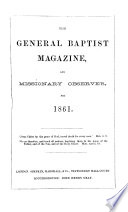 | Henry Philip Tappan - 1839 - 310 pages
...regarding it as a contingent cause — "a power to do, or not to do,"* — or a faculty of determining " to do, or not to do something which we conceive to be in our power."t We may here inquire wherein lies the necessity of a cause opposed to a contingent cause ?... | |
 | 1861 - 980 pages
...we have ideas of right and wrong, and correspondent feelings of praise and blame;' and the wiU, or ' the determination of the mind to do, or not to do, something which we conceive to be in our power.' These are a few of the intellectual powers with which God has endowed every man. Thus constituted,... | |
 | Thomas Reid, Dugald Stewart - 1843 - 632 pages
...withholding it from, any particular action, "f III. Its definition. — [It may more briefly be defined, the determination of the mind to do or not to do something which we conceive to be in our power.] If this were given as a strictly logical definition, it would be liable to this objection, that the... | |
 | Thomas Chalmers - 1845 - 442 pages
...willing. But the act of willing has been further expressed by a term appropriated wholly to itself—and that is, volition. Mr. Locke defines volition to be...the same time, from giving any other more logical definition—on the plea, that simple acts of the mind do not admit of one. 16. There is certainly... | |
 | Thomas Chalmers - 1847 - 426 pages
...is not at all expressive of the faculty. Those terms which discriminate, and which restrict language to a special meaning, are very convenient both in...that simple acts of the mind do not admit of one. 16. There is certainly a ground, in the nature and actual workings of the mental constitution, for... | |
 | Dugald Stewart - 1849 - 450 pages
...employing it in, or withholding it from, any particular action."* Dr. Reid defines it more briefly to be " the determination of the mind to do or not to do something which we conceive to be in our power." He remarks, at the same time, that " this definition is not strictly logical, inasmuch as the determination... | |
 | David Stuart (D.D.) - 1853 - 196 pages
...mind, of which he considers willing as one, do not admit of definition ; and he describes volition as " the determination of the mind to do or not to do something which we conceive to be in our power." This, however, is to describe an exetcise of the will — not the will itself. Dr. Hampden defines... | |
 | Dugald Stewart - 1855 - 438 pages
...it in, or withholding it from any particular action."* — Dr. Eeid defines it more briefly to be, " the determination of the mind to do or not to do something which we conceive to be in our power." He remarks, at the same time, that " this definition is not strictly * [Kfsny, Book II. chap. MI. g 15.]... | |
 | Henry Philip Tappan - 1857 - 650 pages
...regarding it as a contingent cause — " a power to do, or not to do,"• or a faculty of determining " to do, or not to do something which we conceive to be in our power ."t We may here inquire, wherein lies the necessity of a cause opposed to a contingent cause ? Its... | |
 | George David Doudney - 1858 - 480 pages
...will is thus described:—"The will is that faculty or power of the mind by which we determine either to do or not to do something which we conceive to be in our power; the faculty which is exercised in deciding among two or more objects which we shall embrace or pursue.... | |
| |